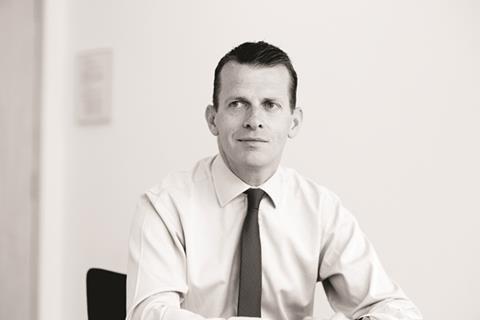
Customers’ willingness to shake up the status quo will stand Wincanton in good stead whatever challenges lie ahead, according to its boss.
Speaking to MT at the publication of its half year results to 30 September, CEO Adrian Coleman said diversity in the customer base it works with and the fact that it does not serve sectors selling high value items such as cars meant Wincanton was in a solid position ahead of any tightening in the UK economy.
Coleman added that customers that have seen input costs rise due to sterling’s devaluation are also increasingly receptive to Wincanton’s offer, and there is an appetite for change.
“I can think of a couple [of tenders] where I genuinely thought we’d just be there as part of their process and they’d renew with the incumbent or stay in-house.
“But we’ve seen far more willingness to change if they can see real value there,” he said.
Wincanton’s first half group turnover grew 3.4% to £581m while pre-tax profit increased 3.6% to £20.3m (2016: £19.6m) thanks to a strong showing from its customers in the home and DIY sectors.
This offset a fall in operating profit in its industrial and transport division, where the company recorded a £2.9m exceptional cost in this latest period as it restructures the division and makes redundancies.
“I think the competitive landscape is pretty tough for transport activities whether general haulage, containers that sort of business. I couldn’t lay all the blame on just the market.
“I think we took on some new work and there are bits going in and going out. As ever, having a really efficient transport business is getting the jigsaw puzzle to fit together and hum really nicely. Through that transition we didn’t get that right in the first half and we noticed it in the first quarter, hence the update at the trading statement in June,” Coleman said.

Action being taken
He added that it was now working through a remedial plan looking at performance levels, including vehicle utilisation, and vehicle and driver efficiency – this will also see an, as yet, undisclosed amount of redundancies in the division and back office and central functions. This should be complete by the calendar year’s end.
“We’ve also taken the opportunity to look at a number of processes and say ‘can we accelerate the normal process of continued improvement and streamlining?’ and do that assertively rather than just through natural attrition.”
This, Coleman said, would mean not only delivering on its full year results but looking ahead to the 2018/19 period, preparing it for what will remain a competitive landscape likely facing up to pressures such as rising labour costs.
While industrial and transport felt pain, as mentioned Wincanton’s retail and consumer division was buoyant, with operating profit up from £11.8m to £15.1m in the half year period helping the group increase overall turnover and profit in the first half.
Coleman said home and DIY customers – such as Argos, Wickes, Wilko and B&Q - had helped it deliver good organic growth, and he used IKEA as an example of one of the division’s successes.
“IKEA we started working with this year. They are a great business with a really attractive customer proposition that aspired to increase their presence online as they’d traditionally been a store-focused business.
“So we’re helping them with that multi-channel and e-commerce fulfilment. We sent up two distribution centres in the south east that will help deliver online growth. More recently, in the start of the second half, we started doing the two-man delivery for the bulkier stuff, kitchens, bedroom, stuff like that,” he said.
Future ready
In summary, Coleman said of the group’s half year results: “It was a strong performance and that shows what a good, diversified customer portfolio we have.
“We’ve executed pretty well on delivering against an organic growth strategy. We have a really important portfolio of contracts and of course you want to make sure you drop more in than fall out. Overall we’ve done that so the business has grown.
“There’s been some good wins and, inevitably, a few things that got away from you but the important thing is it's net growth,” he said.













